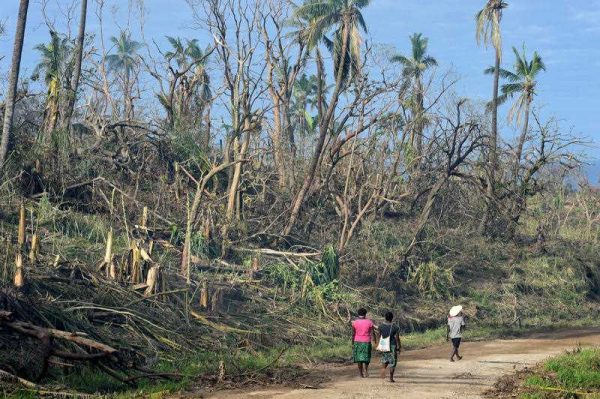The belief that climate change will force Pacific Islanders to leave their homes is not new. Currently, there is a pending appeal before the Supreme Court of New Zealand involving an I-Kiribati man who is requesting that he and his family be allowed to stay in New Zealand permanently due to the belief that the people of Kiribati face indirect persecution from human-induced global warming. There is no precedent for such action, so this case is really a challenge to international law based on the 1951 United Nations Convention Relating to the Status of Refugees. In order for the appeal to be successful, the Convention would need to be amended again to account for climate refugees — a classification that currently does not exist. However, if Pacific Islanders are recognised as a particular social group and more importantly — if it is recognised that climate change is the result of political persecution through the self-serving policies of the developed world — then they could be considered [climate] refugees under the terms of the 1951 UN Convention without it being amended.
What will happen in that particular case remains to be seen. But if it is accepted that climate change is a real, anthropocentric process, then it can hardly be denied that low-lying Pacific Island populations are victims of some form of persecution by larger industrialised countries.
A refugee, according to the 1951 Convention is ‘someone who is unable or unwilling to return to their country of origin owing to a well-founded fear of being persecuted for reasons of race, religion, nationality, membership of a particular social group, or political opinion’. According to most definitions of a social group, Pacific Islanders meet the criteria. They interact with one another (through institutions such as the Nauru Agreement and the Western and Central Pacific Fisheries Commission), share similar characteristics, have a sense of unity (as seen in the Pacific Unity Festival and the Pacific Games) and in many cases have kinship ties.
The argument against climate change refugees is that, ‘those fleeing disruption caused by climate change are not plausibly thought of as being persecuted’ and therefore cannot have a well-founded fear of persecution. But the more evidence that arises to support the anthropocentric origins of climate change, the less valid that argument becomes.
The difficulty is that in this case, the shift between indirect and direct persecution falls along an ill-defined spectrum. No single nation industrialised intentionally to persecute another nation through climate change, but this does not mean that some nations did not indirectly persecute others by refusing to change policies once it became known that they may be having dire consequences for isolated Pacific Island populations. And some nations are continuing to persecute, in this sense, this same social group now that there is overwhelming support for action against climate change and reliable knowledge of what causes it and how to mitigate it.
Faced with a cyclone, atoll-based Pacific Islanders cannot go to higher land to escape the surge and do not always have a shelter strong or large enough to protect everyone from ferocious winds. Aside from actual human-to-human violence, the conditions which exist after a cyclone are not unlike those that affect a war-torn country — loss of land, food and fresh water sources, disease, malnutrition, dehydration, weather exposure and displacement. The geographic isolation and restrictions associated with the physical size of many low-lying islands means that residents have no alternative but to suffer and to anticipate the next storm, thereby reliving their plight. Without help, residents of these islands cannot escape their war zones, and certainly have a well-founded fear of being persecuted from the effects of climate change. But their collective voice, like their collective land area, is tiny.
The relationship between location and coastal flooding is well understood and has shaped policies in the developed world. In the wake of Hurricane Katrina, the US Federal Emergency Management Agency (FEMA) identified areas along the Louisiana coast in which it ‘would not approve any new construction, including any temporary facilities or replacement projects’. In 2009, the US Army Corps of Engineers identified similar areas as buyout areas to eliminate the risk to people and assets. In 2012, after Hurricane Sandy, FEMA also identified buyout areas in New York and New Jersey.
The dangers facing low-lying Pacific Islands are no different than those facing coastal residents of New York, New Jersey or Louisiana. By refusing to ratify agreements such as the Kyoto Protocol, countries like the US are persecuting people living on low-lying islands.
The UN, the US and other world powers should offer Pacific Islanders a buyout of their ‘coastal’ areas. And Pacific Islanders should have the option to relocate, with international assistance, based on their well-founded fears of climate change and new status as climate refugees.
Scott Leis holds a Master of Arts in Geography from Kansas State University. He has lived in the Federated States of Micronesia and currently lives in Edgewater, Maryland.

